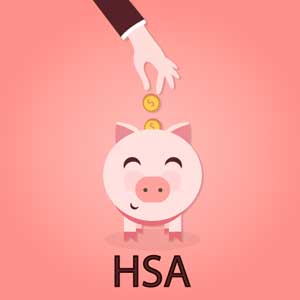Now that you have done your taxes, did you know that you could save more money on your taxes and take care of your smile in the same time? Health savings accounts allow you to save money pre-tax for future medical and dental expenses and here at River Dentistry we accept many of the health savings plans. It is very similar to a credit card transaction. In most cases, you cannot start a health savings plan until the open enrollment period, unless you get a new job, but let’s discover how these plans work, so you’d be ready when the opportunity presents itself.
Health savings accounts (HSAs) are like personal savings accounts, but the money in them is used to pay for health care and dental expenses. You — not your employer or insurance company — own and control the money. The money you deposit into the account is not taxed. To be eligible to open an HSA, you must have a special type of health insurance called a high-deductible plan. The IRS sets the contribution limits for HSAs to about $3,300 for individuals and about $6,600 for family coverage.
What are some potential advantages of HSA accounts?
- You decide how much money to set aside for health care costs.
- You control how your HSA money is spent. You can shop around for care based on quality and cost.
- Your employer may contribute to your HSA, but you own the account and the money is yours even if you change jobs.
- Any unused money at the end of the year rolls over (stays in your account) to the next year.
- You don’t pay taxes on money going into your HSA.


Are HSA similar to flexible spending accounts?
Yes, but there are a couple of key differences:
- An HSA allows you to roll over the entire unspent amount, whereas a flexible spending account (FSA) allows you to roll over a maximum of $500 per year.
- Another difference is that the money you put into an HSA is yours and you can take it with you if you switch jobs or retire. You can’t take money from an employer-sponsored FSA with you if you quit or change jobs.
- Finally, it’s important to know that in most cases you can’t have both an HSA and an FSA.
Sounds interesting? Call us at 213-486-0006 for more information about using health savings accounts to pay for dental services or to make an appointment.











